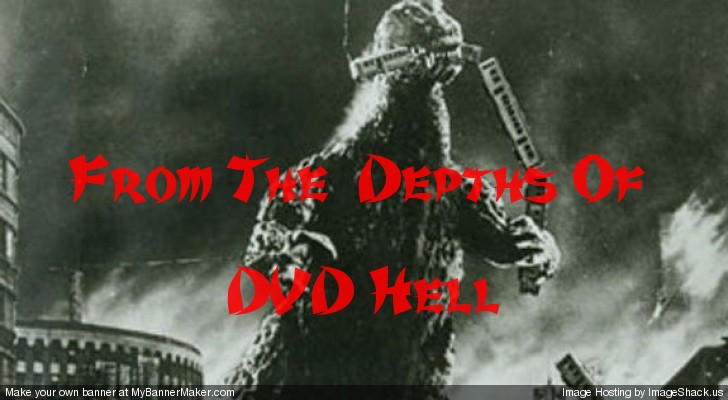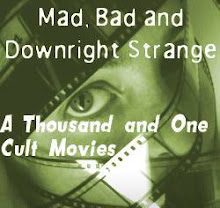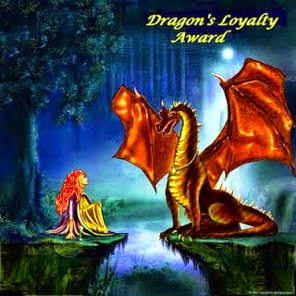Title: Nowhere
Director: Gregg Araki
Released: 1997
Staring: James Duval, Rachel True, Chiara Mastroianni, Debi
Mazar, Kathleen Robertson, Christina Applegate, Nathan Bexton, Guillermo Díaz,
Jeremy Jordan, Sarah Lassez, Jason Simmons, Ryan Phillippe, Heather Graham,
Jordan Ladd, Thyme Lewis, Joshua Gibran Mayweather, Mena Suvari, Scott Cann,
John Ritter, Gibby Haynes
Plot: Following a group of LA teens over the course of 24
hours. A day made up of a volatile cocktail of sex, drugs, suicide, bizarre
deaths and alien abduction.
Review: There are certain films which throw down a gauntlet
to its audience from their opening scenes, with prime examples of this being the fire extinguisher
bludgeoning in “Irreversible” or Pumpkin and Honey Bunny in “Pulp Fiction”
which almost seem challenge the audience to watch past this point, while often giving them
a good idea of what is in store should they choose to stick around. “Nowhere”
is another of these films as we open to Dark (Duval) jacking off in the shower
to fantasies of his bisexual, polyamorous girlfriend Mel (True) aswell as his
shy classmate Montgomery (Bexton)….ladies and gentlemen welcome once more to
the world of Gregg Araki!
While perhaps a little too arty and irrelevant for some,
especially when the plot and the characters, like the title suggests go “Nowhere”
but at the same time it is bold and fascinating film making and the sort of
film, that most Mumblecore films seems to be trying to imitate, if in perhaps a
slightly less explicit style while this film remains a testament to the underrated
era of film making originality which was the 90’s.
The final film in his “Teenage Apocalypse Trilogy” which
started with the colorfully named “Totally Fucked Up” and followed by “The
Doom Generation” now ends with this film which seemingly sets out to top
everything which came before it. While it has frequently being described as “Beverly
Hills 90210 On Acid” for myself it feels closer to Bret Easton Ellis’s “Less Than
Zero” given a David Lynch twist, a book whose own film version seemed almost
like a different book altogether and minus any of the frequently nightmarish
imagery that Ellis’s debut novel so proudly contained. Needless to say Araki
has truly captured that anarchic spirit here to create an alternative vision of LA,
were teens care for little outside of the pursuit of casual sex and drug taking
and were the sole focus is seemingly on making to Jujyfruit’s (Haynes) party.
Split into eight interweaving stories, the film constantly switches
between plotlines with the main of these plots revolving around Dark, a film
student who constantly films everything happening around him and living under
the belief that the world could end at any moment. Meanwhile his only other
concern seems to be with getting laid, be it with his latest crush the shy and
retiring Montgomery
or his supposed girlfriend seems more concerned with sleeping with anything
that moves, in particular Lucifer (Robertson) whose acid tongue is the cause of
much anguish for Dark. The other plots meanwhile vary in their integral nature
to the plot from the naïve Egg (Lassez) and her inadvertent meeting with “The
Teen Idol” (Simmons) and Cowboy’s (Díaz) relationship issues with his drug
addicted boyfriend Bart (Jordan).
Meanwhile other plotlines such Nihilistic couple Shad (Phillippe) and Lilith
(Graham) or Mel’s younger brother Zero (Mayweather) and his girlfriend Zoe’s
(Suvari) attempts to find the secret location of Jujyfruit’s party are less integral
and serve more as a distraction mainly from Dark and his various issues.
Once more Araki refrains from portraying these storylines in
any form of normality, as he randomly switches between the plots seemingly on a whim, while
inserting surreal offshoots like the random alien abductions and Bart’s twisted
S&M session to ensure that the viewer is kept in a states of almost permanent
confusion as to what they are watching and leading me for many years after my
first viewing of this film, to describe it as a film which makes a lot more
sense when your drunk! This art house style of filming is also carried over
into the art direction with nearly every frame of this film appears to have
been shot with the maximum amount of artistic freedom with sets often appearing
like art installations as especially seen in the bedrooms of Bart and Egg,
while saving the blow out for Jujyfruit’s party which in places almost seems like
a tribute to Michael Alig’s “Club Kids”. Having seen the course of Araki’s
career following this film, in many ways this film now feels like a last hurrah
for his surreal roots before he moved onto more mainstream projects, before
returning to this style of film making with “Kaboom”.
Still the downside of
this vision is that while it might look very pretty on the surface, it
does seem ultimately hollow beneath especially when it can at times seem
like a
constant stream of casual sex and drug taking. Still with this film he
has
created a vision of LA seemingly on the brink of its final days as
frenzied televangelists
(Ritter) urge the masses to repent their sins, while random graffiti
screams out
slogans like “God Help Me” and "Repent Now" as these teens live only for
the most primal
pleasures, with consequences of their actions rarely being given more
than a
passing though.
While the drugs and sex might seem like all the film has to
offer, like a softer version of Larry Clarke’s “Kids”, Araki has also brought a
vein of pitch black humour to the film with moments such as Dingbat (Applegate),
Egg and Alyssa (Ladd) binging on cake before discussing their purging habits
with unsurprisingly drugs once again being the solution to all of life’s
problems. At the same time there are moments which truly catch the viewer off
guard such as shocking rape of one character, another is bludgeoned to death
with a soup can, while the ending itself is almost like a bizarre tribute to
Kafka’s “The Metamorphosis”. Needless to say while not every idea in the film
works, Araki still throws enough at the screen to balance out the misfires with
some truly memorable and frequently stunning imagery.
The soundtrack like the majority of the film is a relic of
the decade it was released, with the likes of Suede, Hole and Elastica all
appearing on the soundtrack, while we also get the old school Marilyn Manson
track “Kiddie Grinder” making a welcome appearance, to what is a surprisingly
rocky soundtrack, especially for a Araki who usually leans towards more
Shoegaze, which still makes an appearance but as more of a background presence
outside of the title sequence.























I'm not well versed in Araki films, I've only seen two, Smiley Face which I found completely hilarious, and The Doom Generation, which I saw ages ago, dont remember much about it except that it was about a threesome of friends who end up making out with each other. I'm looking forward to seeing Nowhere which I've somehow missed, I wouldnt mind seeing more of Arakis's films.
ReplyDeleteI've yet to watch "Smiley Face" but it is on the watch list, as currently working my way through the Araki back catalog. It's funny you should say that about "The Doom Generation" as currently rewatching it and that's essentially what most of the film is about :)
DeleteThe problem with Araki though is that like Larry Clarke, his obsession with explicit sex and drug abuse tends to overpower everything else in the film, while his films especially the early ones are now often so dated, that they are more like relics of the 90's, which isn't too bad if you were a child of the 90's like myself. Definitely an overlooked director though.
Then you'll enjoy Smiley Face, it's not sexual at all, in fact, I'd go as far as saying that it's the best pot head movie ever made, it truly captured what it is to BE a pot head. I have not seen a better portrayal of it, or a funnier one for that matter. Highly recommend it for a good laugh! Arakis lightest film I think.
DeleteNever heard of this one. Doesn't sound like my thing but that doesn't mean it doesn't sound interesting. Thanks!
ReplyDeleteGregg Araki is not the easiest of directors to get into, especially when he constantly bombarding the audience with frequently controversial imagery and original plotting. Still at the same time he helps keep things interesting, to occasionally dip into his films.
Delete